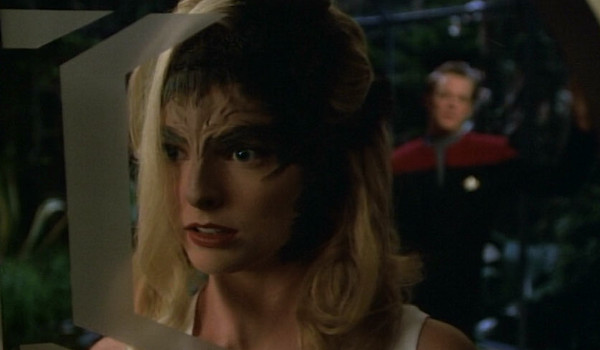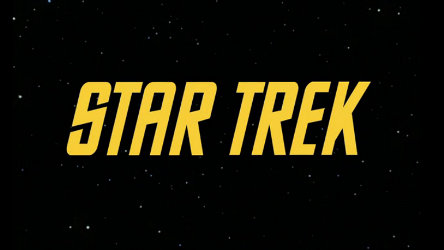- Title: Star Trek: Voyager – Ex Post Facto
- wiki: link


Throwback Tuesday takes us back to the Delta Quadrant and to the misadventures of a starship crew 70,000 light years from home. In a story more than a little similar to Star Trek: The Next Generation “A Matter of Perspective,” Tom Paris (Robert Duncan McNeill) is accused of romantic entanglements with the wife (Robin McKee) of a scientist and the scientist’s (Ray Reinhardt) murder. Convicted of the crime before Voyager is made aware of the situation, Paris has had memories of the murder (from the victim’s perspective) implanted in his mind, forcing him to relive the murder every 14 hours. Given his more questionable character, and a living record of the murder, Paris’ possible guilt is an easier sell than Riker‘s in “A Matter of Perspective,” although no one ever accepts the evidence against him. The idea of implanting memories as punishment was also used by Deep Space Nine in “Hard Times.”
While onboard with the idea of the memory punishment, Jeri Taylor wasn’t pleased with the portrayal of Tom Paris in the episode. It occurs early enough in the show’s history to offer the chance of his impropriety, but, in her opinion, it also tarnished Paris in fans’ eyes for several episodes to come. The truth behind the murder, and the false memories implanted in Paris’ mind, is a bit convoluted but it shakes down to a conspiracy by a scientist and the widow (who is his lover) both to do away with the impediment keeping them apart and hide secrets of his research within Paris’ mind for the planet’s biggest rival to get their hands on. Lt. Tuvok (Tim Russ) is given the role of uncovering the truth in the episode, both by talking to witnesses and through the use of a Mind Meld with Paris (which informs him of the oddities in the data implanted within his shipmate’s mind). While interesting in appearance, the episode’s goes for a film noir-style in some scenes, it’s a bit tonally inconsistent at times and staggers to a conclusion with a basic whodunit resolution that relies far to much on exposition and Tuvok’s hunch that a Sherlock Holmes reference might be true.

